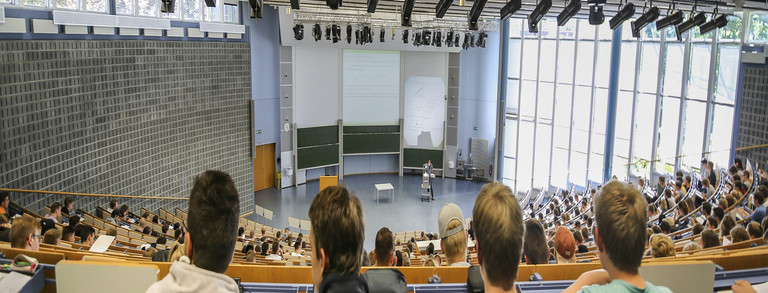Ageing Societies
Summary
| Degree | Master of Arts (M.A.) |
|---|---|
| Subject group | Social Sciences and Cultural Studies |
| Standard program duration | 4 semesters |
| Admission requirements |
none
|
| Start of studies |
Winter semester
|
| Language | German |
| Enrollment requirements | |
| Further information | Website of Department of Social Sciences |
| Department | Department of Social Sciences |
Overview
Demographic change is one of the most important tasks for both individuals and societies as a whole. The M.A. in Ageing Societies enables students to recognize current and future challenges related to the ageing of societies and to analyse and shape them.
To do so, the master’s degree program teaches advanced knowledge of individual and societal ageing from a social scientific perspective as well as methodical skills in empirical social research. With this, it enables graduates of Bachelor’s and Diplom degree programs in social and behavioral sciences such as sociology, psychology, social work and further disciplines to deepen and expand their knowledge of ageing/age research.
The full-time program comprises compulsory and supplementary courses as well as a specialization. The compulsory courses cover broader discipline-related essential knowledge in the field of age and ageing as well as advanced methodological skills. Students can choose supplementary courses and a specialization, which combine research-based, theoretical and applied topics.
For more information about the master's degree program, please visit the Social Sciences Department homepage.
Skills and knowledge
Prerequisite for the Master’s degree program in Ageing Societies is a Bachelor’s degree or a Magister or Diplom program of at least six semesters in social or behavioral sciences as well as relevant knowledge of empirical qualitative and quantitative social research methods (courses in empirical research methods and statistics of at least 10 credit points). Students without the necessary methodological skills are obliged to take courses to gain these skills during the first semester of the Master’s degree program. TU Dortmund offers respective courses.
Field of activity
The master’s degree program opens graduates a wide variety of professional careers in both research and applied contexts. It offers the opportunity to develop an individual study profile that qualifies students for challenging tasks and leading positions. This includes, for example, the following fields:
- Scientific (ageing) research and teaching at universities, other institutions of higher education and non-university research institutions
- Management, consulting and planning in welfare organizations and institutions whose target groups are ageing and older people (e.g. in the field of nursing care and civic engagement)
- Management, consulting and planning in governmental institutions at EU, federal, state and local level in the field of planning and policy for demographic aging and older persons
- Age management in companies and administrations in the field of human resources
- Teaching, management and planning in institutions of education and further training
- Consulting and planning in the field of product development, marketing, tourism and leisure industry with focus on ageing and older consumers




![[Translate to English:] Partner Four hands are holding the green logo of TU Dortmund University](/storages/tu_website/_processed_/1/d/csm_Partner_Nicole_Rechmann_KW_40b35bb3fd.jpg)




![[Translate to English:] Forschung An apparatus with tubes in a laboratory](/storages/tu_website/_processed_/0/c/csm_Forschung_Juergen_Huhn_cbd34afd6d.jpg)
![[Translate to English:] Studium Five students are sitting in a lecture hall. They are talking to each other.](/storages/tu_website/_processed_/c/9/csm_Studium_FelixSchmale_81d94adc86.jpg)





